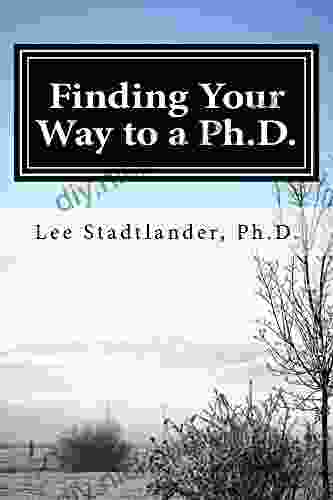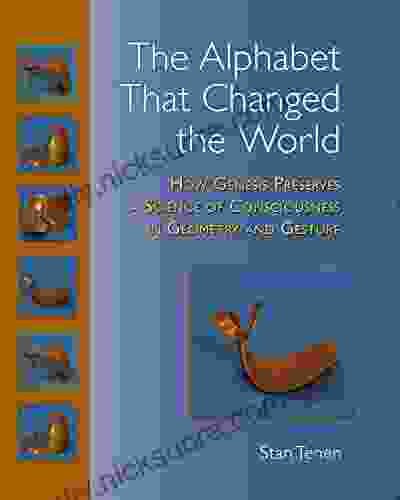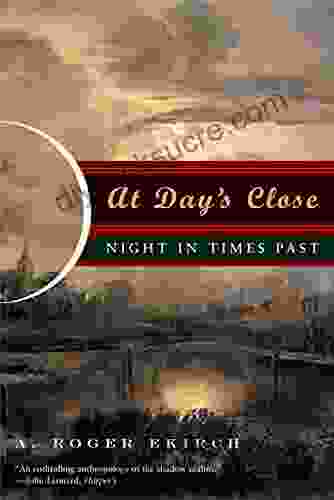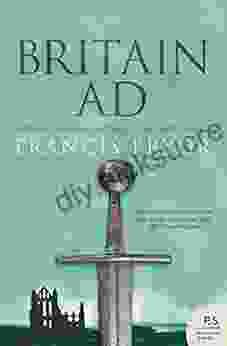Quest for Arthur: England and the Anglo-Saxons

The history of England is a long and complex one, but it can be divided into three main periods: the Anglo-Saxon period (495-1066),the Norman period (1066-1154),and the Plantagenet period (1154-1485).
4.5 out of 5
| Language | : | English |
| File size | : | 3183 KB |
| Text-to-Speech | : | Enabled |
| Screen Reader | : | Supported |
| Enhanced typesetting | : | Enabled |
| Word Wise | : | Enabled |
| Print length | : | 361 pages |
The Anglo-Saxon Period
The Anglo-Saxon period begins with the arrival of the Anglo-Saxons in Britain in the 5th century. The Anglo-Saxons were a group of Germanic tribes who had migrated from mainland Europe. They quickly established themselves in Britain, and by the end of the 6th century they had conquered most of the country.
The Anglo-Saxon period was a time of great cultural change in Britain. The Anglo-Saxons brought their own language, customs, and laws to Britain, and these gradually replaced the Celtic culture that had existed there before.
The Anglo-Saxons were also a very warlike people, and they were constantly fighting among themselves for control of the country. This period also saw the rise of Christianity in Britain. The Anglo-Saxons were converted to Christianity by missionaries from Rome, and by the end of the 7th century most of the country had converted to the new faith.
The Anglo-Saxon period ended in 1066 with the Norman Conquest. The Normans were a group of French-speaking Vikings who invaded England from Normandy. They defeated the Anglo-Saxon king Harold Godwinson at the Battle of Hastings, and established a new Norman dynasty in England.
The Norman Period
The Norman period was a time of great change in England. The Normans brought their own language, customs, and laws to England, and these gradually replaced the Anglo-Saxon culture that had existed there before.
The Normans were also a very powerful people, and they quickly established a strong central government in England. They also built many castles and cathedrals, and they encouraged the growth of trade and commerce.
The Norman period ended in 1154 with the death of King Henry I. Henry I was the last of the Norman kings, and his death led to a period of civil war in England. The civil war was eventually won by Henry II, who became the first of the Plantagenet kings.
The Plantagenet Period
The Plantagenet period was a time of great prosperity and expansion for England. The Plantagenet kings were very successful in war, and they added many new territories to the English kingdom.
The Plantagenet period also saw the rise of the English Parliament. The Parliament was a body of representatives from the different parts of the country, and it played an important role in the government of England.
The Plantagenet period ended in 1485 with the death of King Richard III. Richard III was the last of the Plantagenet kings, and his death led to a new period of civil war in England. The civil war was eventually won by Henry Tudor, who became the first of the Tudor kings.
The Tudor Period
The Tudor period was a time of great change in England. The Tudor kings were very powerful, and they established a strong central government in England. They also broke away from the Catholic Church and established the Church of England.
The Tudor period also saw the rise of the English Renaissance. The Renaissance was a period of great cultural change in Europe, and it had a major impact on England.
The Tudor period ended in 1603 with the death of Queen Elizabeth I. Elizabeth I was the last of the Tudor kings, and her death led to a new period of civil war in England. The civil war was eventually won by Oliver Cromwell, who established a republic in England.
The Stuart Period
The Stuart period was a time of great political instability in England. The Stuart kings were often at odds with Parliament, and this led to a number of wars between the two sides.
The Stuart period also saw the rise of the British Empire. The British Empire was a vast collection of territories that were controlled by England. The British Empire was the largest empire in the world, and it had a major impact on global politics and economics.
The Stuart period ended in 1714 with the death of Queen Anne. Queen Anne was the last of the Stuart kings, and her death led to a new era in British history. The Hanoverian period began in 1714 with the accession of King George I. The Hanoverian kings were German princes, and they were not very popular in England.
The Hanoverian Period
The Hanoverian period was a time of great change in England. The Hanoverian kings were very successful in war, and they added many new territories to the British Empire.
The Hanoverian period also saw the rise of the Industrial Revolution. The Industrial Revolution was a period of great technological change in England, and it had a major impact on the country's economy and society.
The Hanoverian period ended in 1901 with the death of Queen Victoria. Queen Victoria was the last of the Hanoverian kings, and her death led to a new era in British history.
The Modern Era
The modern era of British history began in 1901 with the accession of King Edward VII. King Edward VII was the first of the Saxe-Coburg and Gotha kings, and he was a very popular monarch.
The modern era of British history has been a time of great change. The British Empire has declined, and Britain has become a much more multicultural society.
Britain is now a constitutional monarchy, and the head of state is the Queen or King. The Queen or King is the symbolic head of the government, and the real power lies with the Prime Minister and the Parliament.
Britain is a member of the European Union, and it has a close relationship with the United States. Britain is a leading member of the Commonwealth of Nations, and it has a strong commitment to international cooperation.
The history of England is a long and complex one, but it can be divided into three main periods: the Anglo-Saxon period, the Norman period, and the Plantagenet period. These three periods saw great changes in the country's culture, society, politics, religion, economy, and foreign policy.
The modern era of British history has been a time of great change, and the country has faced a number of challenges. However, Britain has emerged from these challenges as a strong and prosperous nation.
References
- Ashley, Mike. British History: A Very Short . Oxford University Press, 2009.
- Brown, R. Allen. The Anglo-Saxons. Boydell Press, 2009.
- Davis, Norman. The History of England. Penguin Books, 2008.
- Fryde, E. B., et al. Handbook of British Chronology. Cambridge University Press, 1996.
- Haigh, Christopher. English History for Dummies. John Wiley & Sons, 2009.
4.5 out of 5
| Language | : | English |
| File size | : | 3183 KB |
| Text-to-Speech | : | Enabled |
| Screen Reader | : | Supported |
| Enhanced typesetting | : | Enabled |
| Word Wise | : | Enabled |
| Print length | : | 361 pages |
Do you want to contribute by writing guest posts on this blog?
Please contact us and send us a resume of previous articles that you have written.
 Fiction
Fiction Non Fiction
Non Fiction Romance
Romance Mystery
Mystery Thriller
Thriller SciFi
SciFi Fantasy
Fantasy Horror
Horror Biography
Biography Selfhelp
Selfhelp Business
Business History
History Classics
Classics Poetry
Poetry Childrens
Childrens Young Adult
Young Adult Educational
Educational Cooking
Cooking Travel
Travel Lifestyle
Lifestyle Spirituality
Spirituality Health
Health Fitness
Fitness Technology
Technology Science
Science Arts
Arts Crafts
Crafts DIY
DIY Gardening
Gardening Petcare
Petcare Lyla Lee
Lyla Lee Val Mcdermid
Val Mcdermid A M Wilson
A M Wilson Timothy J Gawne
Timothy J Gawne Thomas R Martin
Thomas R Martin Helen Marot
Helen Marot Val Emmich
Val Emmich Lauren Muhlheim
Lauren Muhlheim Zen Lylah
Zen Lylah Peter Shelton
Peter Shelton Linh Phung
Linh Phung King Solomon
King Solomon Cynthia Ulrich Tobias
Cynthia Ulrich Tobias Alison Cotter
Alison Cotter Mark Obmascik
Mark Obmascik Roger Zelazny
Roger Zelazny Jennifer Trainer Thompson
Jennifer Trainer Thompson Andrea Falk
Andrea Falk Lisa Murphy
Lisa Murphy Upton Sinclair
Upton Sinclair A K Davidson
A K Davidson John L Messina
John L Messina Robert P Harris
Robert P Harris A J Messenger
A J Messenger Linda Tuhiwai Smith
Linda Tuhiwai Smith Heather Gudenkauf
Heather Gudenkauf Alf Wilkinson
Alf Wilkinson Harrison Fluss
Harrison Fluss Marks Prep
Marks Prep Randy Friedman
Randy Friedman The R A
The R A Peter Rees
Peter Rees Alyssa Padgett
Alyssa Padgett David Magee
David Magee Kenn Bivins
Kenn Bivins N J Enfield
N J Enfield R A Mejia
R A Mejia Chris I Naylor
Chris I Naylor Todd Wanerman
Todd Wanerman Christine Wheeler
Christine Wheeler Crystal Cestari
Crystal Cestari Bruce Tremper
Bruce Tremper Tsao Lin E Moy L Ac Msom
Tsao Lin E Moy L Ac Msom Toni Natalie
Toni Natalie Tom Jordan
Tom Jordan Zander Brumbaugh
Zander Brumbaugh Steve Angers
Steve Angers Garret Romaine
Garret Romaine Alex Karp
Alex Karp John Mordechai Gottman
John Mordechai Gottman Philip Yarrow
Philip Yarrow William Minto
William Minto Rachael Allen
Rachael Allen Valerio Varesi
Valerio Varesi Brian Clegg
Brian Clegg David G Taylor
David G Taylor Shauna Lynn Panczyszyn
Shauna Lynn Panczyszyn Francis Pryor
Francis Pryor Dr Howard Rankin
Dr Howard Rankin Yasu
Yasu Emily Evans
Emily Evans Shenyang Guo
Shenyang Guo Mike Branon
Mike Branon Brad K Chambers
Brad K Chambers Dr Kevin Leman
Dr Kevin Leman Gary Gruber
Gary Gruber Scott A Ostrow
Scott A Ostrow Kathy Koch
Kathy Koch Lilin Yang
Lilin Yang Kenneth Cloke
Kenneth Cloke Jonathan Eig
Jonathan Eig Michael Dell
Michael Dell Sarah Sutton
Sarah Sutton Ray Ordorica
Ray Ordorica Eric Blehm
Eric Blehm Matthieu Ricard
Matthieu Ricard Sadie Robertson Huff
Sadie Robertson Huff Jennifer N Smith
Jennifer N Smith Grady Hendrix
Grady Hendrix Lyndall Clipstone
Lyndall Clipstone Jane Austen
Jane Austen Flo Perry
Flo Perry Armin A Brott
Armin A Brott Michael Labossiere
Michael Labossiere Ilya Ru
Ilya Ru Adrian Dater
Adrian Dater Ed Webster
Ed Webster Ken Dryden
Ken Dryden Bruce Lansky
Bruce Lansky David Spiegelhalter
David Spiegelhalter Polly Moore
Polly Moore Anne Sigismund Huff
Anne Sigismund Huff Lauren Oliver
Lauren Oliver Peter Maas
Peter Maas Todd Downs
Todd Downs Bree Moore
Bree Moore Joshua Akin
Joshua Akin Joseph Mctaggart
Joseph Mctaggart David A Wells
David A Wells Mandy Rivers
Mandy Rivers Lindsey Vonn
Lindsey Vonn Sky Marsen
Sky Marsen Catherine Stonehouse
Catherine Stonehouse Lou Zambello
Lou Zambello Mitch Landrieu
Mitch Landrieu Rebecca A Moyes
Rebecca A Moyes Taha Sochi
Taha Sochi Karla Helbert
Karla Helbert Elisabeth Fassas
Elisabeth Fassas K A Riley
K A Riley Akash Kapur
Akash Kapur John L Parker Jr
John L Parker Jr Rebecca Black
Rebecca Black John Halligan
John Halligan Andreas Quast
Andreas Quast John Almberg
John Almberg A J Stewart
A J Stewart Christiane Kutik
Christiane Kutik Patrick Meechan
Patrick Meechan Ridge Magee
Ridge Magee Andrew Henderson
Andrew Henderson Jennifer L Armentrout
Jennifer L Armentrout Jennie Finch
Jennie Finch Jean Philippe Dionne
Jean Philippe Dionne W Timothy Gallwey
W Timothy Gallwey Vitaly Pedchenko
Vitaly Pedchenko Bill Jones
Bill Jones Marlynn Jayme Schotland
Marlynn Jayme Schotland Boston T Party
Boston T Party Dan Romanchik Kb6nu
Dan Romanchik Kb6nu Michael Lardon
Michael Lardon Daniel S Pierce
Daniel S Pierce Okina Baba
Okina Baba A Roger Ekirch
A Roger Ekirch Tripp Bowden
Tripp Bowden Zen Faulkes
Zen Faulkes Paul Mccarthy
Paul Mccarthy Loretta Sponsler
Loretta Sponsler Todd Gitlin
Todd Gitlin Michael Shingleton
Michael Shingleton Rysa Walker
Rysa Walker Kenneth Cline
Kenneth Cline A J Hamler
A J Hamler William C Oakes
William C Oakes Cristian Salcescu
Cristian Salcescu Gordon Macquarrie
Gordon Macquarrie Freya Hoffmeister
Freya Hoffmeister Leandro Taub
Leandro Taub Jan Morris
Jan Morris Dan Limbaugh
Dan Limbaugh Len Fisher
Len Fisher George Francis Dow
George Francis Dow Timothy C Urdan
Timothy C Urdan Sean Skahan
Sean Skahan Thomas C Tabor
Thomas C Tabor Heather Anderson
Heather Anderson Shelly Mazzanoble
Shelly Mazzanoble Businessnews Publishing
Businessnews Publishing Russell Sher
Russell Sher Jim Allen
Jim Allen Michael D Coogan
Michael D Coogan Angela Himsel
Angela Himsel Anghel Leonard
Anghel Leonard Stan Skinner
Stan Skinner Dr Alan Whitcomb
Dr Alan Whitcomb Dale P Clemens
Dale P Clemens James Baldwin
James Baldwin Dave Lowry
Dave Lowry Max Tegmark
Max Tegmark Ryan Gray
Ryan Gray Peter Nichols
Peter Nichols Scientia Media Group
Scientia Media Group Nick Jackson
Nick Jackson Sarah Jo Brown
Sarah Jo Brown Todd Rose
Todd Rose Jec Aristotle Ballou
Jec Aristotle Ballou Anji Andrews
Anji Andrews Diane Burke Fessler
Diane Burke Fessler Susan Aud Sonders
Susan Aud Sonders Ken Alder
Ken Alder Carrie Harper
Carrie Harper Amanda Ostrander
Amanda Ostrander John D Currid
John D Currid Rosie Garthwaite
Rosie Garthwaite Giordano Scalzo
Giordano Scalzo Virginia Willis
Virginia Willis Leigh Newman
Leigh Newman Jonathan S Rose
Jonathan S Rose Manoush Zomorodi
Manoush Zomorodi Thomas Hager
Thomas Hager Charles Butler
Charles Butler Don Fink
Don Fink Caspar Craven
Caspar Craven Rebecca Pelky
Rebecca Pelky Sandra Swenson
Sandra Swenson Chris Diamond
Chris Diamond John Long
John Long Niall Ferguson
Niall Ferguson A G Cairns Smith
A G Cairns Smith Sandra Niche
Sandra Niche Dr Tricia Groff
Dr Tricia Groff A J Mackinnon
A J Mackinnon Charles Edward Chapel
Charles Edward Chapel William Monk
William Monk David J Vanbergen Jr
David J Vanbergen Jr Susan Striker
Susan Striker Day Leitao
Day Leitao Sonya Chappell
Sonya Chappell Micha Gorelick
Micha Gorelick Sam Warburton
Sam Warburton Oba Ilari Aladokun
Oba Ilari Aladokun Meghan Leahy
Meghan Leahy Noah Gift
Noah Gift Bruce Collier
Bruce Collier Kevin Adams
Kevin Adams Bob Trueman
Bob Trueman Roxanne Martin
Roxanne Martin Mj Porter
Mj Porter Rekha Ramcharan
Rekha Ramcharan Bryan Berg
Bryan Berg Kelly Starrett
Kelly Starrett Lou Tabory
Lou Tabory David H Barlow
David H Barlow Richard Heath
Richard Heath Steven Raichlen
Steven Raichlen Byron Pitts
Byron Pitts Marcus Butler
Marcus Butler Helen E Johnson
Helen E Johnson A G Howard
A G Howard Tim Flanagan
Tim Flanagan Jack Grimshaw
Jack Grimshaw Ken Castor
Ken Castor Eric Sevareid
Eric Sevareid Stephen R Lawhead
Stephen R Lawhead Dawn Huebner
Dawn Huebner Raymond M Smullyan
Raymond M Smullyan Mike Tidwell
Mike Tidwell A M Strickland
A M Strickland Thomas Mcguane
Thomas Mcguane Monte Burke
Monte Burke Erin Watt
Erin Watt Dmv Test Bank
Dmv Test Bank Dane Huckelbridge
Dane Huckelbridge Hazel Holmes
Hazel Holmes Homeira Qaderi
Homeira Qaderi Lilith Mclelland
Lilith Mclelland Rina Kent
Rina Kent Rick Telander
Rick Telander Calvin L Chou
Calvin L Chou William Scott Wilson
William Scott Wilson Bob Frye
Bob Frye Alexander Greenmaj
Alexander Greenmaj Cyndi Kinney
Cyndi Kinney Michelle Maccarthy
Michelle Maccarthy Jordan B Peterson
Jordan B Peterson Catherine Rodgers
Catherine Rodgers Gemma Milne
Gemma Milne Mia Kankimaki
Mia Kankimaki Roy Richard Grinker
Roy Richard Grinker Anna Goldsworthy
Anna Goldsworthy Katerina Griffith
Katerina Griffith Frost Kay
Frost Kay Peter Zheutlin
Peter Zheutlin Karl Knopf
Karl Knopf Cathy A Malchiodi
Cathy A Malchiodi Iasha King
Iasha King Joe Navarro
Joe Navarro Sergey Kosarevsky
Sergey Kosarevsky David Remnick
David Remnick Soap2day Publication
Soap2day Publication Helen Buckley
Helen Buckley Kathlyn Gay
Kathlyn Gay Dean R Johnson
Dean R Johnson Lillian Tibbles Phd
Lillian Tibbles Phd John Williams
John Williams Kenay Keira
Kenay Keira Tanya Selvaratnam
Tanya Selvaratnam Dame Darcy
Dame Darcy Matt Brown
Matt Brown Sherine Hamdy
Sherine Hamdy Jm Mason
Jm Mason Stan Tenen
Stan Tenen Tammara Webber
Tammara Webber David Deutsch
David Deutsch Eric Armstrong
Eric Armstrong Steve Hindman
Steve Hindman Rafe Esquith
Rafe Esquith Laura Pohl
Laura Pohl Abigail Burd Lcsw Pmh C
Abigail Burd Lcsw Pmh C Jeff Kane
Jeff Kane Nancy Mckenzie
Nancy Mckenzie Megan Vickers
Megan Vickers Pete Ripmaster
Pete Ripmaster Bear Heart
Bear Heart Lucy Christopher
Lucy Christopher Arlin Smith
Arlin Smith Vernon Trafford
Vernon Trafford Kerri Hummingbird Sami
Kerri Hummingbird Sami Raymond J Carroll
Raymond J Carroll Joe Pepitone
Joe Pepitone Mrjamvad
Mrjamvad Adam Savage
Adam Savage Helen Fitzgerald
Helen Fitzgerald Anthony J Onwuegbuzie
Anthony J Onwuegbuzie Jonalu Johnstone
Jonalu Johnstone Watt Key
Watt Key Nicole Conway
Nicole Conway Jennifer Senior
Jennifer Senior Amos Yong
Amos Yong Hicham And Mohamed Ibnalkadi
Hicham And Mohamed Ibnalkadi Din Daniels
Din Daniels Dale Dougherty
Dale Dougherty Jose M Forero Bautista
Jose M Forero Bautista Cath Smith
Cath Smith Winston Starr
Winston Starr Lisa Pease
Lisa Pease Eileen Tracy
Eileen Tracy John Brenkus
John Brenkus Christopher Small
Christopher Small Corina Morariu
Corina Morariu William F Mann
William F Mann Jonathan Mckee
Jonathan Mckee Matthew J Friedman
Matthew J Friedman A H Almaas
A H Almaas Jamal Moustafaev
Jamal Moustafaev Marc S Sabatine
Marc S Sabatine Aaron Kleinmeyer
Aaron Kleinmeyer Jennifer Longmore
Jennifer Longmore A J Mackenzie
A J Mackenzie Remy Agee
Remy Agee Jon Gillespie Brown
Jon Gillespie Brown Filippo Coarelli
Filippo Coarelli Fernanda Pirie
Fernanda Pirie Diane Stresing
Diane Stresing Cailin O Connor
Cailin O Connor Bob Plager
Bob Plager Certsquad Professional Trainers
Certsquad Professional Trainers Michael Lanza
Michael Lanza A R Vasishtha
A R Vasishtha Barry Werth
Barry Werth Tiara R Brown
Tiara R Brown Josh Skeen
Josh Skeen Chelsea Crockett
Chelsea Crockett Paul Watzlawick
Paul Watzlawick Walter Dean Myers
Walter Dean Myers Harry Yoon
Harry Yoon Ray Bradbury
Ray Bradbury Ari Tuckman
Ari Tuckman Lindsey Lapointe
Lindsey Lapointe Chuck Whelon
Chuck Whelon A F Stewart
A F Stewart A J Carlisle
A J Carlisle Natalie Pompilio
Natalie Pompilio Mark Ryan
Mark Ryan Peter Goldenthal
Peter Goldenthal Olivia Smith
Olivia Smith Sharie King
Sharie King Dr Stephanie Bloodworth Psyd
Dr Stephanie Bloodworth Psyd Judi Garman
Judi GarmanA G
 Georgia Varozza
Georgia Varozza Louis Jacques Dorais
Louis Jacques Dorais Rens Bod
Rens Bod Susanne Foitzik
Susanne Foitzik Katrina Abbott
Katrina Abbott Philip Golding
Philip Golding Francis Fukuyama
Francis Fukuyama Saxton Pope
Saxton Pope Sherrilyn Kenyon
Sherrilyn Kenyon Gabrielle Coleman
Gabrielle Coleman Glenn Patron
Glenn Patron Larit Levy
Larit Levy A J Angulo
A J Angulo Pardha S Pyla
Pardha S Pyla Tony Wright
Tony Wright Matilda Ramsay
Matilda Ramsay Charles Szypszak
Charles Szypszak Eugene Don
Eugene Don Joel David Hamkins
Joel David Hamkins Blair Holden
Blair Holden Shanterra Mcbride
Shanterra Mcbride Jamie Vardy
Jamie Vardy Susan Cooper
Susan Cooper Barbara J Bain
Barbara J Bain A L Knorr
A L Knorr Anne Deans
Anne Deans A L Graziadei
A L Graziadei E S Wynn
E S Wynn Cassandra Clare
Cassandra Clare Leslie Stager
Leslie Stager Jim Vernes
Jim Vernes Raymonde Carroll
Raymonde Carroll Pintip Dunn
Pintip Dunn Dirk F Moore
Dirk F Moore William Bauer
William Bauer Peter Godfrey Smith
Peter Godfrey Smith Eva Mauer
Eva Mauer Seth M Holmes
Seth M Holmes William Ramsey
William Ramsey Russell Davis
Russell Davis
Light bulbAdvertise smarter! Our strategic ad space ensures maximum exposure. Reserve your spot today!

 Cristian CoxFinding Your Way To Ph 2nd Edition: A Comprehensive Guide to Navigating the...
Cristian CoxFinding Your Way To Ph 2nd Edition: A Comprehensive Guide to Navigating the...
 Ibrahim BlairKrishna Tb Linear Algebra: A Comprehensive Guide for Students and Researchers
Ibrahim BlairKrishna Tb Linear Algebra: A Comprehensive Guide for Students and Researchers Ernesto SabatoFollow ·4.9k
Ernesto SabatoFollow ·4.9k Jorge AmadoFollow ·14.4k
Jorge AmadoFollow ·14.4k Dashawn HayesFollow ·6.2k
Dashawn HayesFollow ·6.2k Jace MitchellFollow ·19.9k
Jace MitchellFollow ·19.9k Hector BlairFollow ·10.7k
Hector BlairFollow ·10.7k Clark BellFollow ·11k
Clark BellFollow ·11k Devon MitchellFollow ·10.5k
Devon MitchellFollow ·10.5k Corey GreenFollow ·5.2k
Corey GreenFollow ·5.2k

 Franklin Bell
Franklin BellHow Genesis Preserves Science Of Consciousness In...
The book of Genesis is...

 Ted Simmons
Ted SimmonsAt Day's Close, Night in Times Past
As the sun dips...

 Kenneth Parker
Kenneth ParkerRose Under Fire: Code Name Verity - A Heartbreaking and...
In the annals of...

 Jerry Hayes
Jerry HayesNurturing Massage for Pregnancy: A Comprehensive Guide to...
Pregnancy is...

 Blake Bell
Blake BellFill in the Blank: Word Kind of Animal Farm for Kids and...
This interactive fill-in-the-blank...
4.5 out of 5
| Language | : | English |
| File size | : | 3183 KB |
| Text-to-Speech | : | Enabled |
| Screen Reader | : | Supported |
| Enhanced typesetting | : | Enabled |
| Word Wise | : | Enabled |
| Print length | : | 361 pages |










